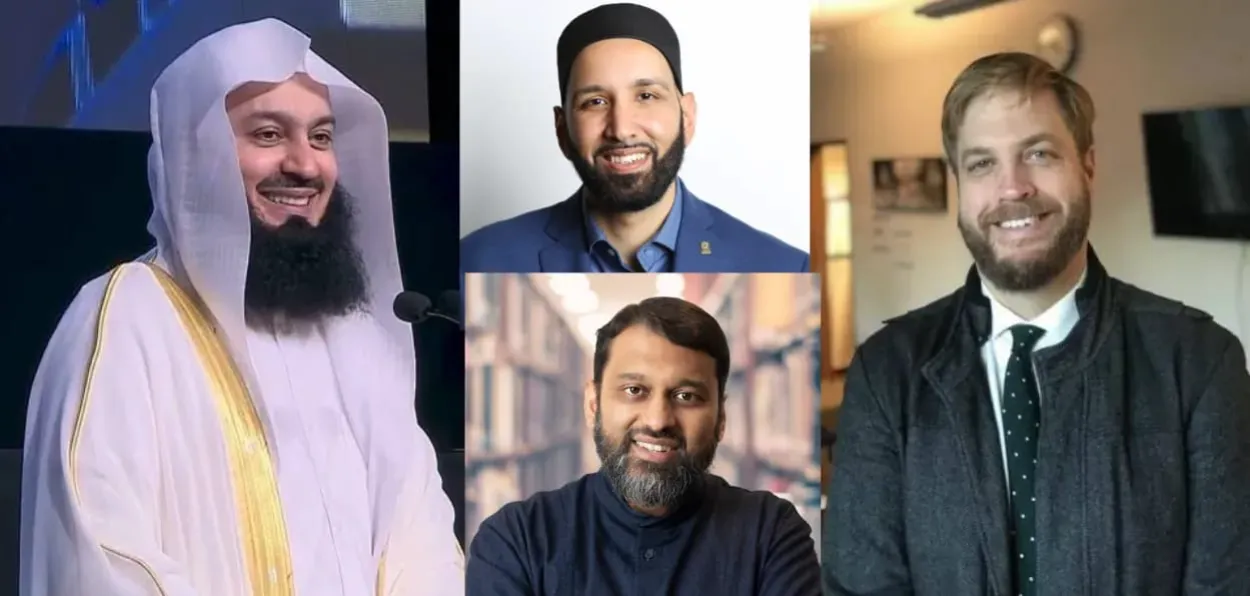
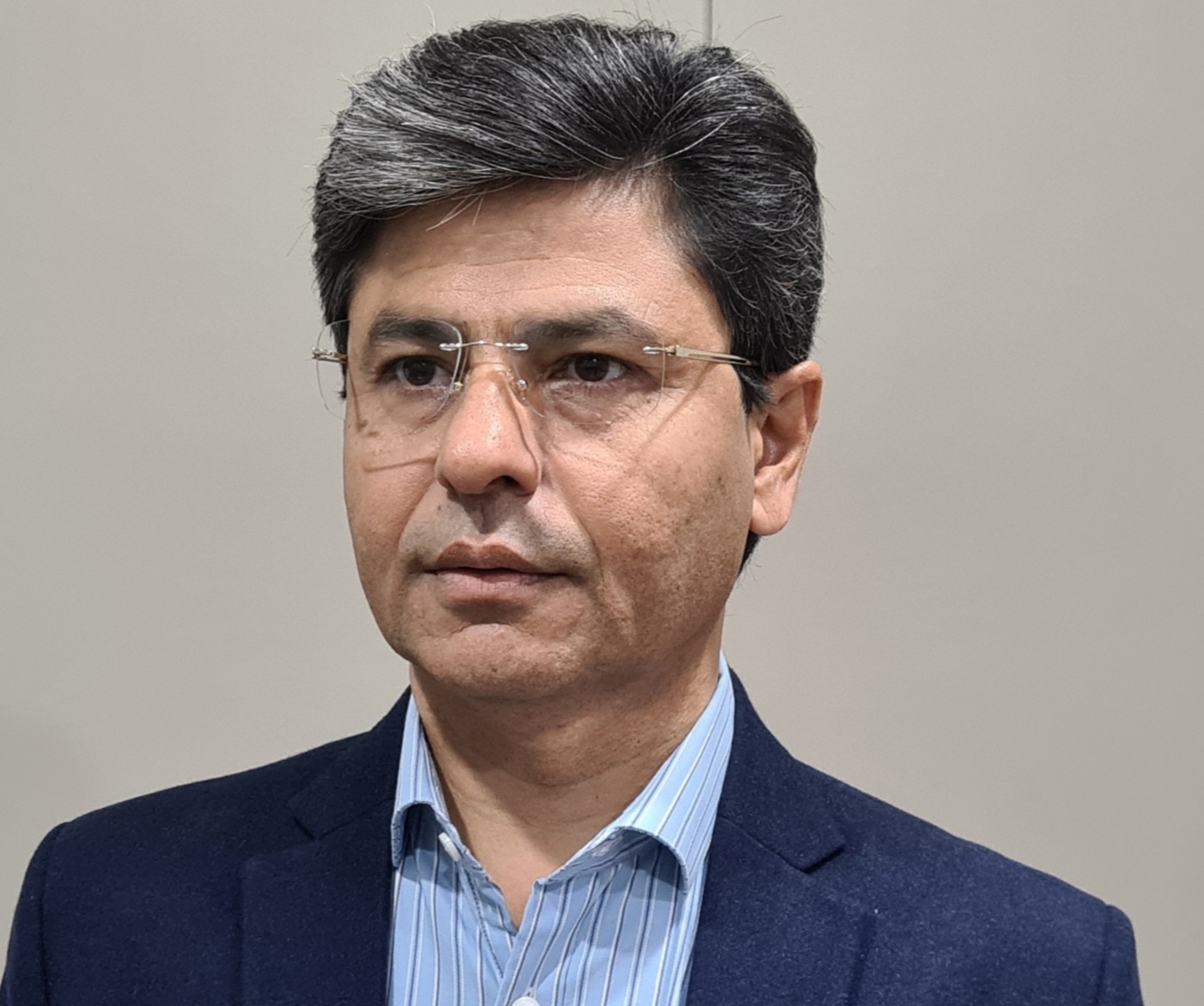 Atir Khan
Atir Khan
Hybrid imams are becoming quite popular in the Western world. Why not in India? A simple inquiry throws up interesting facts. Indian Muslim population equals to collective population of several countries put together, yet we don’t have new-age imams, who are popular, and well-versed with the present realities of time.
A majority of Indian Muslims’ lives, their routines of daily religious life, and ritual activities are not necessarily connected with an institutional form of Islam.
A young Indian practicing Muslim who is doing a job in the corporate world is busy with his struggles, trying to make ends meet, ensuring that his family maintains a decent lifestyle, and paying house rent, and his children’s school fees on time. He is least interested in proselytizing.
Most Indian Muslims do not practice Islam exclusively through religious institutions rather they experience and express their particular ways of being Muslim which includes distinct understandings of the authenticity and authority of their religion. Unfortunately, we don’t have the kind of ulema who could answer the relevant questions of their time.
India has been a great seat of Islamic learning, where higher religious study institutes have enlightened the rest of the Islamic world. Yet the institutionalized Islam in India has been slow in catching up with the requirements of the contemporary world.
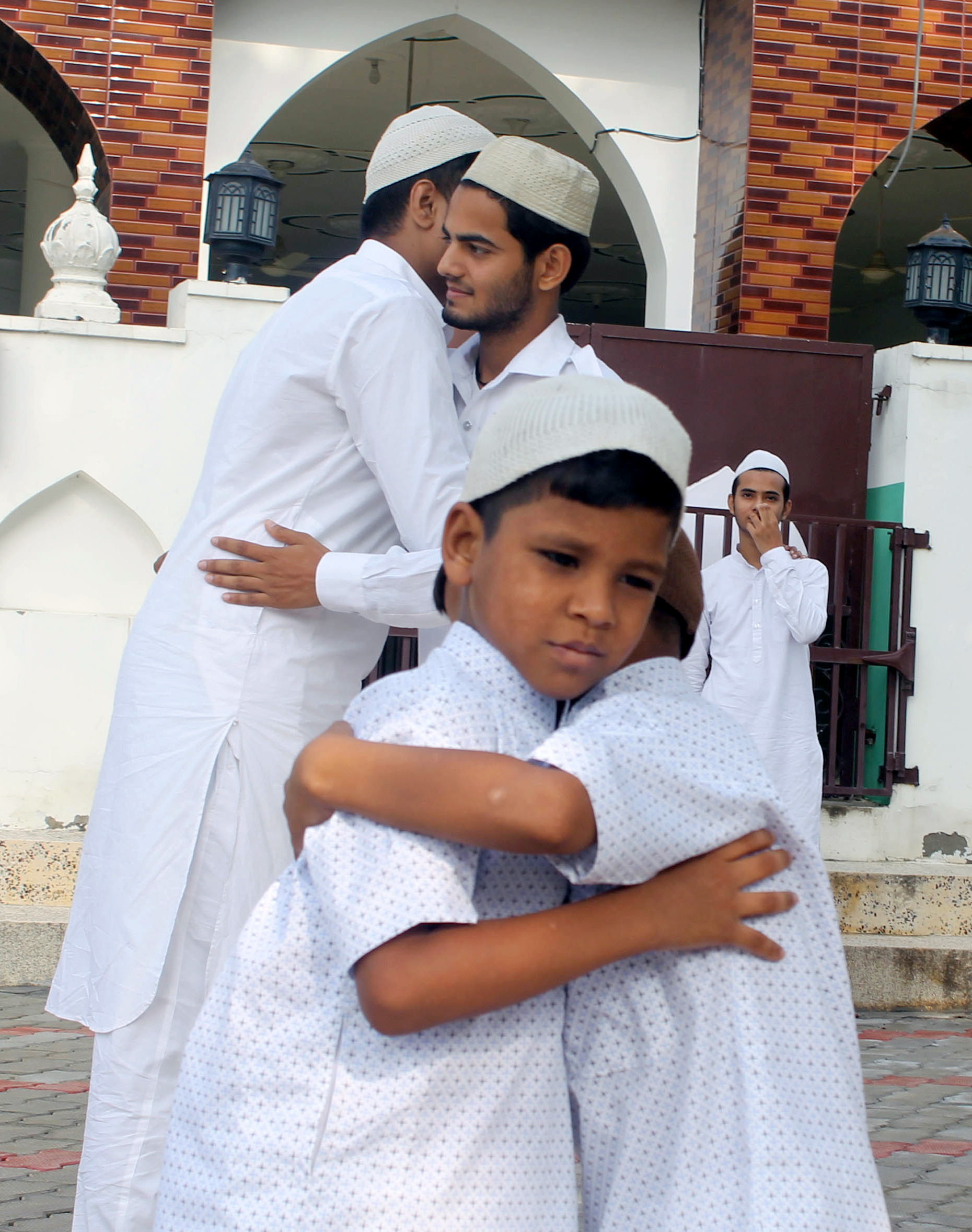 Indian Muslims celebrating Eid
Indian Muslims celebrating Eid
Ironically, this has happened in India, a country that has always given freedom of religion while Muslim-dominated countries such as Saudi Arabia have evolved their outlook only recently.
Today Indian Muslims are present on social media specifically on websites and apps like Facebook, Twitter, and Instagram; they are closely connected with religious scholars, whom they follow, like, and retweet. But most of these scholars are foreigners, and not Indians.
Think hard if you could find any popular Indian Muslim religious figure on social media. You will find none. If at all you will find ones who put out content on political Islam, rather than the spirit of a religion, which is followed by every fourth person in the world.
On the contrary, you will find in the Western world the booming of new age ulema, young religious scholars, who are highly qualified and that’s why becoming popular for their relevance today.
Young Muslims describe a fascination with seeing such religious authority figures, face-to-face, equating them with meeting a popular celebrity.
Yasir Qadhi, Suhaib Webb, Mufti Menk, and Omar Suleiman are just a few examples. Such people are known as hybrid imams in the world of cyber-Muslims and those who study mapping Islamic digital media in the Internet Age.
Yasir Qadhi has a doctorate from Yale University and teaches at Rhodes College in Memphis, USA. He has a prominent online presence and regularly posts on Facebook and Twitter; on Facebook one million people like and follow him, and there are more than 5,49,000 followers on X. His posts mainly pertain to the daily lives of Muslims.
Similarly, Canadian-born Suhaib Webb, is one of the most prolific online imams. He is famous for delivering an eight-second fatwa on Snapchat and popular media like the TV show, The Walking Dead.
 Darul Uloom, Deoband
Darul Uloom, Deoband
Mufti Menk is another religious authority figure with a popular online profile. Based in Zimbabwe, Menk has over seven million global followers on Twitter.
He is particularly known for his motivational tweets and khutbahs that incorporate comedy to attract the attention of young Muslims. Some people consider him as motivational as Jalal-ud-Din Rumi, the great Sufi saint born in Afghanistan.
Young Muslims relate to such religious scholars and don’t hesitate to approach them. They provide them with answers to their everyday life.
On the contrary in India, we have religious scholars who are difficult to approach. Primarily as the latter believe in upholding propriety. They are stiff and believe in looking inward rather than opening up to the present world.
This is the prime reason that young Indian Muslims seek motivation from foreigners rather than their people. Though there are a few exceptions from Kashmir. Such as young Hafiz Adil Siddiqui whose posts are related to modesty, social harmony, and domestic violence. He has 1.1 lakh subscribers on YouTube. Similarly, Mufti Mohiuddin Raheemi, who posts on drug de-addiction has 1.9 lakh followers on Facebook.
Looking at things in totality we find largely Indian Muslim scholars are living in the past, which renders them irrelevant. They are only remembered during ritual prayers and related occasions.
This is very unfortunate as India has had some of the revered minds in Islamic studies. Their scholarly aptitude has been phenomenal, but today’s ulema has failed to move with the requirements of the changing times.
One such example came to light on Darul Uloom’s website, which has a 15-year-old fatwa on Ghazwa-e-Hind on it. The fatwa (a ruling on a point of Islamic law) talks about an Islamic military expedition that was supposed to happen in the Indian region in the life and times of Prophet Mohammad (PBUH).
Fifteen years ago, a pupil asked the institute to explain the term Ghazwa-e-Hind. The organization gave the online explanation, without giving any footnote to explain that the concept has no relevance today.
As a result, a controversy erupted when the National Commission for Protection of Child Rights received a complaint regarding the post on the website. This could have easily been avoided. Such neglect reflects poorly on the majority of Indian Muslims, who have nothing to do with institutionalized Islam.
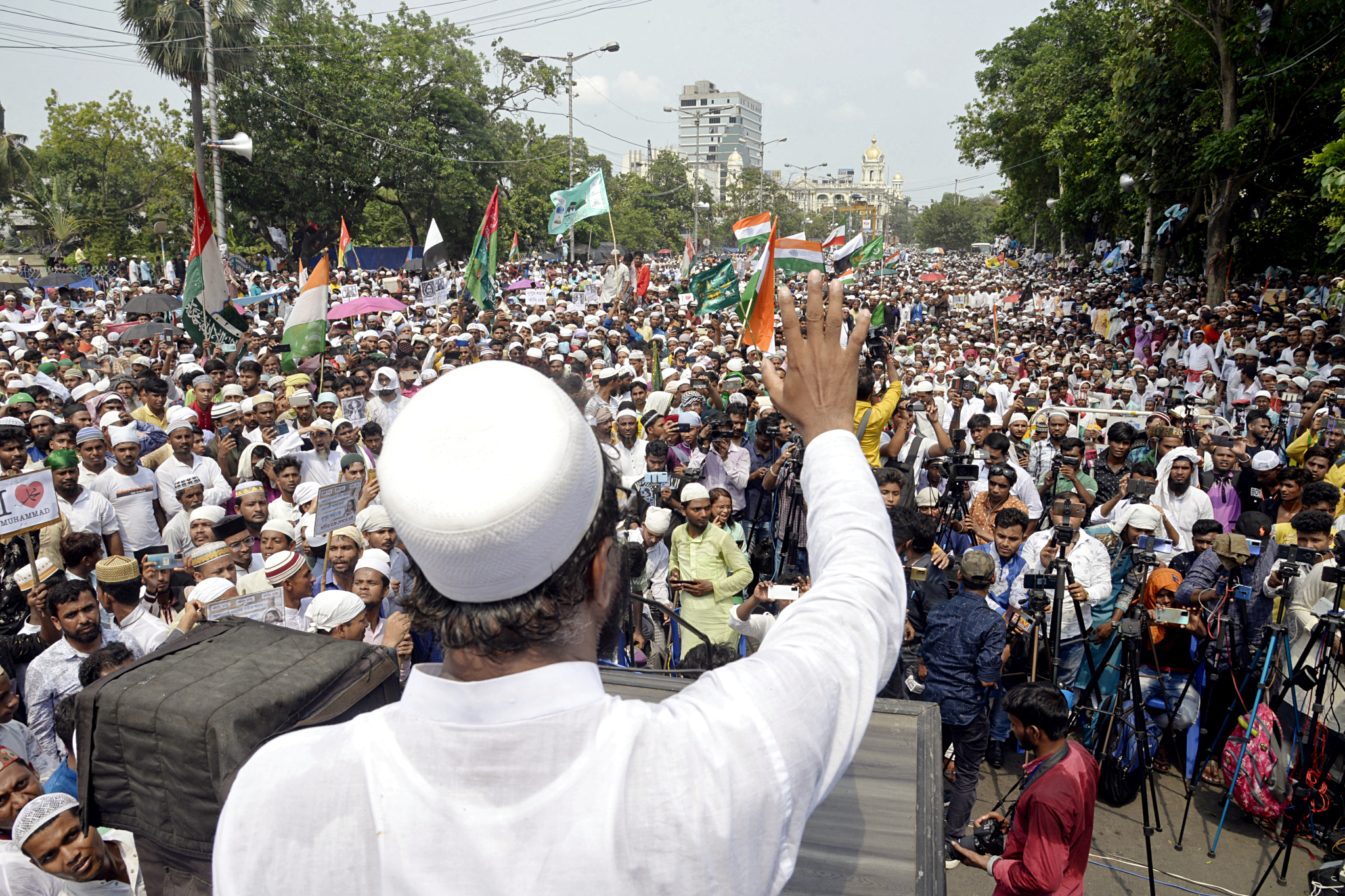 A rally of Muslim youth in West Bengal
A rally of Muslim youth in West Bengal
Rather than wasting time on obsolete Islamic concepts ulema need to focus on what is relevant today. Such as teachings of observations of fourteenth-century Islamic scholar Ibn Khaldun, whose learning and ideas have had astonishingly modern relevance.
Our ulema will have to recalibrate with the changing times, otherwise they will soon become irrelevant. They have had a glorious past and to continue with this legacy they must change their mindset and make necessary changes.
The quality of religious scholars and imams requires a marked improvement to lead the community effectively. Their discourses have to be harmonious rather than in conflict with the new spinning world.
Moreover, Indian Muslim youth should be motivated and inspired by the country’s religious scholars and not based in foreign countries. Seats of learning like Darul Uloom should conduct social media training courses for Ulema to make them relevant.
Indian Muslims are unique in the ways they practice their religion. They are both religious and spiritual at the same time. This has made them resilient in the post-modern world.
ALSO READ: Concept of Ghazwa-e-Hind is meant to mislead Muslim youth
They have not been affected by the violence perpetrated due to the politicization of Islam in foreign countries, so it is better if that remains this way and they are influenced by Indian ulema rather than foreigners as far as their religious practices and ideology are concerned.
